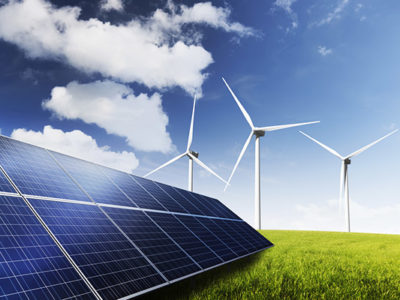Climate Change and Nigeria
A population explosion. Sluggish economy. Weak governance. Serious climate impacts. What could possibly go wrong?
By the time my youngest granddaughter is thirty, Nigeria will be the world’s third-largest country. It’s also one of the countries that’s least prepared to adapt to climate change, which will be much worse by then.
Nigeria’s population is expected to roughly double by 2050, to around 400 million. The population was previously expected to double again by 2100, but the current estimate is that it will reach “only” about 550 million. In the meantime, China’s population is expected to fall; as a result, Nigeria’s population will be about three-fourths that of China.
The Notre Dame Global Adaptation Initiative rankings show that Nigeria as the 17th most vulnerable countries in the world to climate change. It’s also the 14th least able to adapt. Nigeria is stressed even today. The NY Times reports that “nearly two-thirds of its 213 million people live on less than $2 a day; extremist violence and banditry are rife; and life expectancy is just 53, nine years below the African average.” Climate change will only make things worse.
The population of Lagos is now around 15 million. It’s projected to reach 24 million by 2035, and it could be the world’s largest city by the end of the century. Lagos is also subject to flooding from rivers, extreme rain, and the sea, all of which will worsen with climate change. The Economist reports that a third of the population could be displaced by the end of the century if climate change reaches 3 °C.
According to Brookings, “Extreme weather patterns—fiercer, longer dry seasons and shorter, more intense rainy seasons—are exacerbating challenges confronting local communities.” Food security is already a problem and will worsen due to climate change and population growth.
Sluggish economic growth is one reason why Nigeria may have trouble adapting. In terms of the economy, Nigeria experienced a surge of growth at the beginning of this century, averaging over 8% from 1999 to 2010. But things weren’t so rosy in the last decade, as the country was hit by recessions. (Nevertheless, McKinsey reports, there were some bright spots, with hotspots of poverty fading, and rapid growth in parts of Lagos.) There’s been double-digit inflation more or less constantly since the start of this century.
Current GDP growth is in the 2-3% range, which wouldn’t be bad for a country like the U.S., but is barely enough to keep up with population growth in Nigeria. In short, at present Nigeria seems to be treading water in terms of growth. If that continues, it will be hard-pressed to find the resources to adapt to climate change.
Probably the more serious barrier to adaptation is that Nigeria has what is politely referred to as a governance problem. US AID is pretty blunt about this:
“There are roadblocks to a strong democracy in Nigeria at all levels of government. Conflict—triggered by political competition and communal, ethnic, religious or resource allocation rivalries—poses a major threat to democracy. Corruption pervades the daily lives of Nigerians. Many government institutions do not adequately engage with citizens or the private sector and lack the capacity to carry out their mandates. Further, civil society lacks both the capacity and the resources to effectively engage with government and advocate for change.”
Dealing with a threat like climate change is hard for any government; much harder for such a weak one that is also coping with a surging population.
As our President would say, “Here’s the deal, folks”: Yes, there are ways to help Nigeria with some of its underlying problems, but there are real limits on what outsiders can do to fix a country. What we can do, however, is limit the climate threat that Nigeria will face — a threat it barely contributes to causing, with 0.26% of global emissions. This is yet one more reason why curbing global carbon emissions is of the utmost urgency.
Reader Comments
3 Replies to “Climate Change and Nigeria”
Comments are closed.







Thanks for looking beyond the horizon. Which policy do you think is the best fit for emerging countries with weak institutions and serious corruption?
Choice #1: The complex, opaque administratively burdensome cap and trade requiring creation of new institutions and market?
Choice #2: A simple carbon tax carried out by the least corrupt(?) and most capable institutional body–Federal Ministry of Finance–under the framework of IMF oversight?
Message: The California model is not a model for emerging economies which are NOT (i) wealthy, (ii)administratively strong, (iii) characterized by low corruption, and (iv) populated with citizens who strongly support climate action. Recycling tax revenues into household rebates and a Carbon Border Adjustment Mechanism are the only measures that have a chance of gaining public and industrial support for climate action.
I’ve come to the view that the big advantage of a carbon tax is simplicity and ease of administration (as opposed to the more subtle virtues that economists tend to focus on.). As I think you’re suggesting, that could be a particular advantage in countries with weak governance. Of course, those countries often have trouble with their tax systems, too, so it’s not a panacea.
This kind of information must be distributed to peoples around the world to motivate us to take and demand immediate actions TODAY
Another excellent version is:
Climate Change Impacts (by NOAA)
https://www.noaa.gov/education/resource-collections/climate/climate-change-impacts